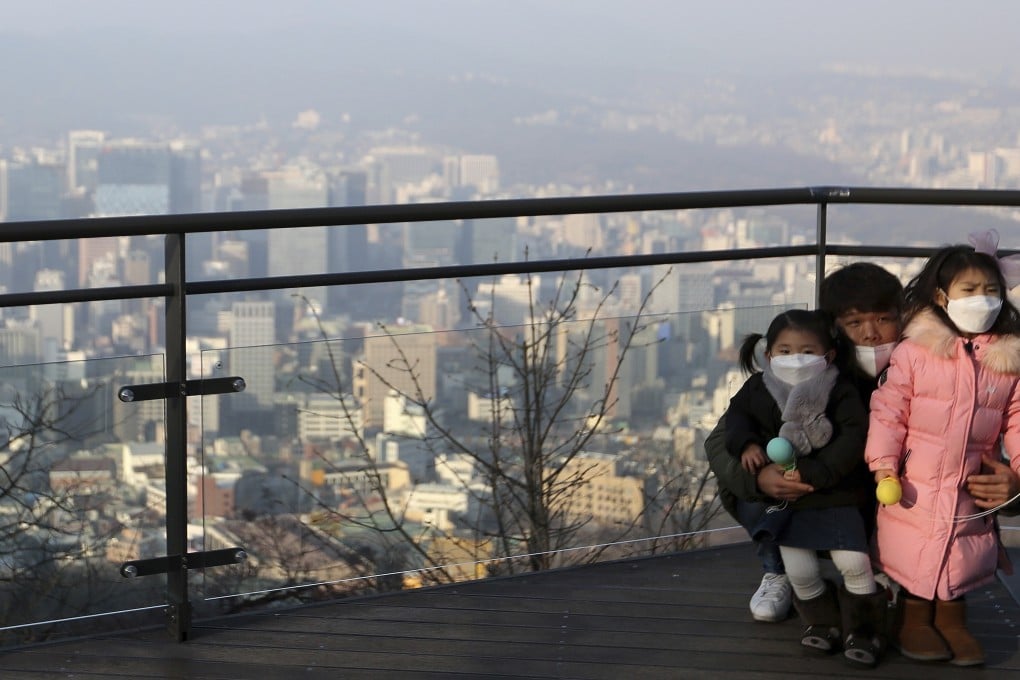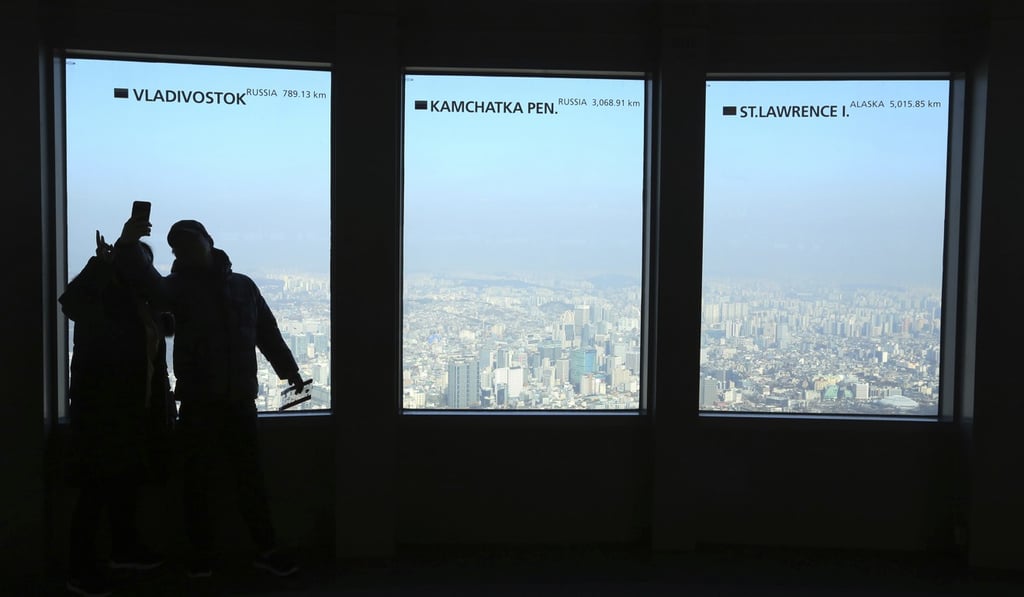South Korea chokes on smog and once again seeks to blame China
- The national average hovered around 102 micrograms of pollutants per cubic metre, putting most of the country into the ‘very bad’ category
- Air pollution has spiked in other parts of Asia during the past week, with India, Thailand and mainland China all affected

A thick haze of smog has covered South Korea for the second day in a row, prompting officials to close outdoor venues and release health advisories. Parts of Seoul and Gyeonggi province have been particularly affected.
Levels of air pollution became severe on Sunday and worsened on Monday morning as dangerous levels of fine particulate matter, or PM 2.5, blanketed the country. PM 2.5 air pollutants are 30 times thinner than a human hair, and can enter the lungs and even the human blood stream when inhaled, causing major health problems.
In parts of Seoul, the pollutants reached 169 micrograms per cubic metre. The national average hovered around 102 micrograms, putting most of the country into the “very bad” category, according to Air Korea’s air quality index.
The Korea Meteorological Association (KMA) expected the levels would remain serious until Tuesday, when it plans to reduce the advisory from “very bad” to “bad”. Levels of pollutants in South Korea on Monday reached more than four times the World Health Organisation’s guidelines for healthy air, which limits the amount of PM 2.5 humans should breathe to 25 micrograms.

South Korea has in the past sought to blame pollution from mainland China for its problems with air quality. Headlines on South Korea’s Yonhap television claimed the nation is inundated with “air pollution from China”. A comic in the JoongAng newspaper called out President Moon Jae-in for failing to raise the matter with China.